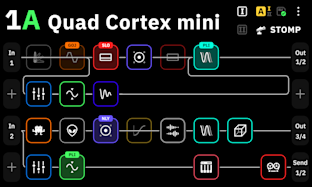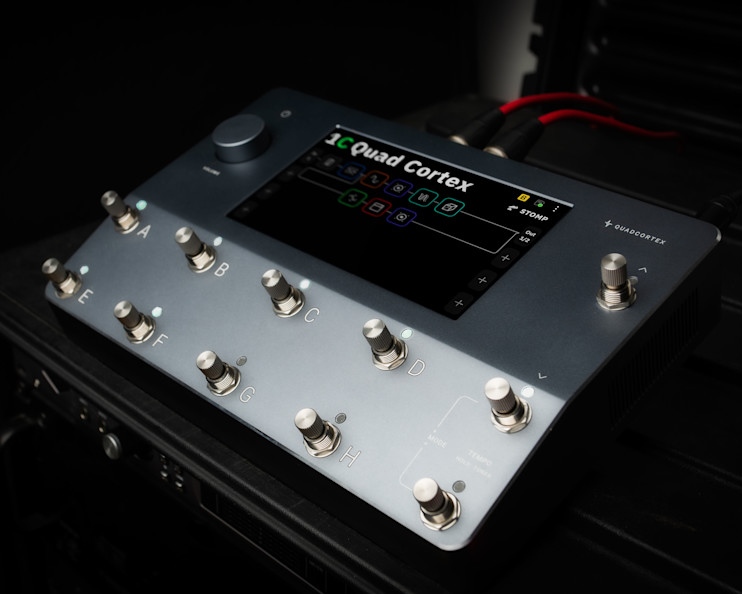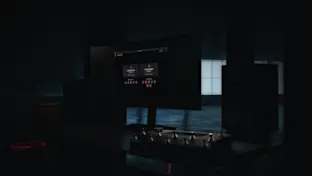
Quad Cortex Development Update #23

Formerly Quad Cortex Development Update - May 2021
Things at Neural are as hectic as ever! We are working extremely hard on adding new features, models, and improving the ecosystem as a whole. Below is a brief description of what we are tackling simultaneously.
CorOS 1.0.3
CorOS 1.0.3 is nearing the end of alpha testing and should be available within the next week or two. It will include Multi-Out as an Output option on The Grid, which routes your signal through XLR Outs 1&2 as well as 1/4" Outs 3&4, and USB. It will be the default setting for all factory Presets and newly created Presets.
CorOS 1.0.4
The highly requested expression pedal auto-engage and reverb & delay optimizations were originally scheduled for our first major update (CorOS 1.1); we have decided to bring them forward to 1.0.4, available a few weeks after 1.0.3. Reverb and delay memory usage has been greatly improved, allowing for more blocks to be run in a single instance.
New Virtual Devices
The addition of new virtual devices is at the forefront of our development. We have ported a new Flanger algorithm. Additionally, we have begun work on a gorgeous Plate Reverb algorithm as well as a lush Shimmer Reverb. Furthermore, we have completed the algorithm research for the Intelligent Pitch Shifter/Harmonizer, which will have many amazing features that we are eager to share with you in a future update.
On top of all of this, we are working on modeling and Capturing more amplifiers, with the Marshall® Jubilee® being at the final research stage. A Bassman® and other iconic Fender® amplifiers are next in the queue.
Improved File Manager & Metadata
In our last update, we hinted that we are working on adding more useful metadata to Presets and Captures to make them better organized and easier to search. This is a major update that will be available in a few months. In addition to the redesigned file manager, we are adding both automated metadata, such as an indication of the amount of gain a Capture has, as well as user-inputtable metadata such as the parameters set on the target device. We will discuss this further in another update soon.
Increased Capacity
Prior to the improved file manager and metadata, we will increase the storage capacity of Neural Captures and IRs to 1024 user-assignable slots both on the Quad Cortex and in Cortex Cloud. We are aiming to make this change in CorOS 1.0.4.
Cortex Mobile 1.1
Cortex Mobile 1.1 is almost completed. The biggest addition in this version is deep linking, which allows you to copy a direct link to any profile or public Preset/Capture to share anywhere else on the web. Perfect for promoting your items on our forum or Discord or on your own social media accounts.
Bundling
Finally, one of the most significant changes we have coming soon is item bundling. Currently, when you download a Preset from Cortex Cloud that uses a Neural Capture also on Cortex Cloud, you have to Star & download the Capture separately. This is a cumbersome user experience, and in many cases, leads users to think the Preset they have downloaded is broken. Bundling resolves this.
With bundling, when you upload a Preset to Cortex Cloud it will automatically upload any dependent Captures with it. Both the Preset & Captures uploaded will be private, but to make the Preset public, the Captures will be made public as well.
Similarly, when you download a public Preset, it will download any dependent public Captures with it. If you are viewing a Preset on Cortex Mobile and it uses a Capture that is no longer available, you will be shown a warning.
Bundling involves a lot of changes to the Quad Cortex UI as well as Cortex Cloud and Cortex Mobile. It’s something we’ve been working on for some time, and we hope to release it within the next couple of months.
Stability and Bug Fixing
With over 4000 units shipped to date, Quad Cortex continues to be extremely solid, with record-low refund and RMA requests.
The list of ongoing bugs is small and decreasing, however, our team continues to work on software issues in order to improve system stability and performance even further.

